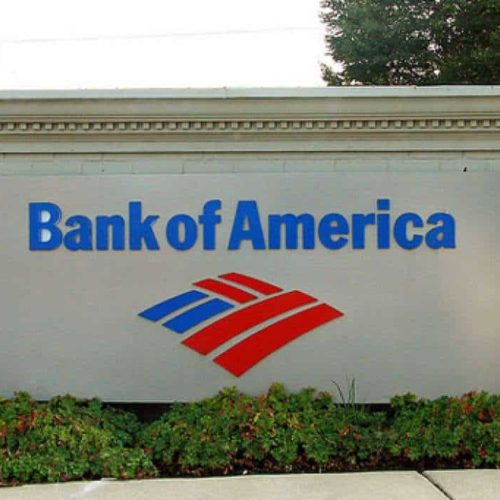Introduction
Credit rating agencies took a reputational hit after the financial crisis for giving good grades to garbage financial products — bad advice that many investors complain lost them billions of dollars. But the agencies still have a powerful ally in Washington: big banks, important clients with whom they have long had a symbiotic relationship.
Now, big banks are pushing back on financial reform meant to protect investors by ending the government-backed system that enshrines the symbiotic relationship into law, letters obtained by iWatch News show. Banks would have to evaluate the risks of financial products themselves — a responsibility that would prevent them from shifting blame for giving poor financial advice to someone else.
Specifically, the banks are lobbying the Office of the Comptroller of the Currency to minimize a rule change required under the Dodd-Frank regulation law that would scrub federal statutes of any reference to credit rating agencies, eliminating a requirement that banks hire them, according to letters commenting on the proposed change. The letters were obtained in response to a public records request under the Freedom of Information Act.
The government currently requires banks to pay rating agencies to grade their offerings, information on which investors base decisions whether to buy. The rule change being contemplated by the Comptroller of the Currency would free banks from having to hire a government-sanctioned credit rating agency like Moody’s Corp. or Standard & Poor’s Financial Services to rate every new security that goes out of a bank’s door.
That’s a freedom that the banks don’t want. In letters to the OCC, the banks offer a bevy of warnings about the consequences to investors and to the U.S. economy. They say that no longer requiring the agencies to rate each security threatens to destabilize the securities markets, will deprive investors of a set of common metrics used to assess a security’s risk, and will cost the banks a lot of money.
But those aren’t the banks’ only fears. When the government requires banks to use ratings agencies, it helps “insulate” financial institutions issuing or buying securities from lawsuits, noted Gary Witt, a former Moody’s managing director who now teaches statistics at Temple University.
Thus a bank sued overthe failure of a top-rated security can blame the government-ordered credit rating agency. “The more regulatory privilege that a rating has the better the defense against litigation it is,” said Brooklyn Law School professor David Reiss.
And if banks are insulated from lawsuits over securities that go bad, there really isn’t anyone else to sue. Credit rating agencies have long argued — successfully, so far — that they don’t bear any legal liability for their ratings. They say that their ratings are opinions, and thus protected as free speech under the First Amendment.
Under Dodd-Frank, that protected status isn’t expected to change. To win a lawsuit, investors must prove that an agency was “grossly negligent” in crafting a rating in order to win a lawsuit.
Bank of America warns of ‘unintended consequences’
As often happens, Congress wasn’t explicit in what it expected regulators to do. The Dodd-Frank law, often touted as financial reform, calls on theOCC to substitute the credit rating requirement with “such standard of credit-worthiness as appropriate.”
That would seem to leave broad discretion to regulators, and with the door ajar, lobbyists are trying to widen it. In the letters to the OCC, most banks suggest delaying the new rule, or doing away with it all together. If that doesn’t happen, they ask that banks be allowed to continue to use credit ratings as part of a broader risk-evaluation strategy when rating new securities.
In one comment letter, Bank of America lawyer Phillip Wertz cautions that the rule change poses “potential challenges and unintended consequences.”
The Clearing House Association, which processes some types of payments for major banks, wrote that implementation “will disrupt the ability of banks to maintain their investment-securities portfolios, with unintended consequences to investing banks, the issuers of securities purchased for those portfolios and the credit markets more generally.”
FTN Financial Capital Markets wrote to say that there is no good alternative to credit rating agencies in assessing the risk of municipal bonds.
At least one bank is not towing the party line — and in its letter to regulators sounds more like a critic of the credit ratings agencies than a bank executive unwilling to part mandated ways with them.
“Over-reliance on ratings to provide useful information about credit-worthiness contributed to the recent financial crisis,” wrote David Hemingway, an executive vice president at Zions Bank in Salt Lake City. “Not only did banks invest in securities that had more risk than implied by their credit ratings, the ratings did not provide a timely warning when the credit quality of the securities began to decline.
The letter continues: “In addition, credit ratings are dramatically inconsistent across ratings agencies. For example, Zions currently holds an investment security that is rated AAA by Fitch and BB+ by Standard & Poors … Banks should do the same credit analysis and grade securities using the same scale and systems as they currently do for loans.”
Credit raters threaten to step beyond oversight
Scott McCleskey, a former head of compliance at Moody’s, said that banks’ fears about taking on more responsibility are not unfounded. Conducting due diligence on securities takes specialized knowledge, even for the most straightforward bond. Whether banks assume such responsibilities internally or contract with a third party, he said, it will prove more costly than relying on the judgments of a credit rater.
McCleskey also noted a possible unintended consequence of the OCC’s action. If credit rating agencies no longer get any benefit from being on the government approved list — officially, they are designated as Nationally Recognized Statistical Rating Organizations — they might choose to “de-list” altogether.
This would mean that they could operate without oversight by the Securities and Exchange Commission, which regulates the ratings agencies.
Under Dodd-Frank, the OCC is required to delete all rating agency references from federal rules. In July, the agency is to deliver a report to Congress on what it proposes to replace the rating agency evaluation requirement.
What might the agency suggest? The OCC, which is charged under Dodd-Frank with writing or co-writing 46 rules and studies, has made little public comment about the status of those rulemakings.
Nor has the Federal Reserve, which also solicited comment. Unlike the OCC, the Fed has posted the comments it has received on its web site.
An OCC spokesman said that the agency does not comment on ongoing rulemakings. He said that comment letters are available, just not through the agency’s public-facing web site.
It is also unclear how effective the banks’ letter-writing campaign might be. The OCC spokesman said that the agency does not meet with outside groups on rulemaking, nor does it solicit input from outside groups.
Banks, though, are lobbying Congress to amend Dodd-Frank to keep credit rating agencies involved in their official assessment of security offering risk. In this, they seem to have an ally in Comptroller of the Currency John Walsh.
Testifying before the Senate Banking Committee in December, Walsh said the ban on using ratings in assessments “goes further than is reasonably necessary,” he said.
Whatever the outcome, the rule change doesn’t mean that credit rating agencies will lose much business, McCleskey said.
“Banks were going to rating agencies long before the government embedded the ratings in the law,” he said. “For that reason, I think you can expect banks to continue to use ratings — even if they must also do additional due diligence.”
Read more in Inequality, Opportunity and Poverty
State Integrity 2012
State Integrity Investigation highlighted ethics problems plaguing Virginia and its governor
Financial Reform Watch
New Jersey: Best score in the country
With a B+, the Garden State receives the highest score in the U.S., an 87



Join the conversation
Show Comments